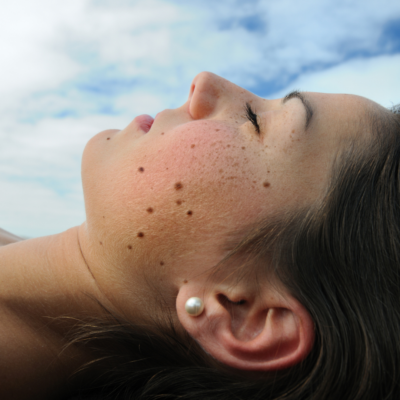
How Wildfire Smoke Can Affect Your Skin and What To Do About It
Our California skies may be clearing from the recent regional fires but microscopic particles from wildfire smoke can linger in the atmosphere for days, weeks or even months. The harmful effects of smoke-polluted air on cardiovascular and respiratory health is well-publicized, but its effects on the skin are less discussed. At California Skin Institute, our board-certified dermatologists understand the impact of smoky air on your skin and what to do about it.
Smoky Air Can Increase Wrinkles and Dark Spots
Skin is the body’s largest organ, and its protective outer layer serves as our first line of defense against air pollution. Thus, it becomes a target for toxic particles which can reach deeper layers through transcutaneous absorption. That means unhealthy wildfire smoke byproducts, such as carbon monoxide and sulfur dioxide, can literally get under your skin where they can provoke unhealthy responses to their presence.
There is strong evidence that exposure to air pollution is a risk factor for skin disorders such as eczema, dermatitis and psoriasis. Increasing research also points to pollutants as playing a role in the skin’s premature aging. Medical researchers have found epidemiological data suggesting that exposure to air pollution is associated with hyperpigmentation spots and wrinkle formation.
How Smoke Can Damage Your Skin
Increased oxidative stress has been identified as a feature of harm caused by air pollutants in the aftermath of large-scale fires. Even without fires, airborne pollutants can emanate from car exhaust, cigarette smoke, industrial gases, and everyday dust, releasing harmful chemicals into the environment. Adding smoke from the massive fires smoke pollution to a higher level, increasing the possibility of harmful effects.
Oxidative stress in simple terms means that a biochemical breakdown is occurring at the cellular level and the good guys are getting overpowered by the bad guys. This results in free radical damage and inflammation from air pollutants. Skin’s structural collagen fibers can become fragmented and weakened. At the same time, pigment-producing cells become overly reactive, causing dark spots. These reactions can occur because the body’s protective response to pollutants goes into overdrive and can deplete our cells’ supplies of protective antioxidants. This chain of events is what can damage collagen fibers and lead to skin dehydration, pigmentation, and fine lines and wrinkles.
Protecting Your Skin from Smoke’s Effects
Checking air quality in your area on reliable websites and researching air purifiers for your home are good steps during and following large-scale fires. Maintaining good health is also an important defense from smoke’s toxic effects. These healthy practices also benefit your skin:
- Eat Antioxidants. Be sure to replenish and optimize your body’s supply of antioxidants. Bright deep colors in produce usually signal the presence of antioxidants – carrots, peppers, berries, yams and dark leafy greens are good bets. You can also take antioxidant supplements.
- Sleep Well. Sleep is your body’s equivalent of going into the repair shop. It is the time your cells need to do their most important work. So, try to skip the news right before bedtime and turn off all electronics.
- Hydrate Selectively. Now is the time to double down on your hydration. Water is best. Herbal teas and plant milks are also good. Go easy on fruit juices because of the sugars.
To further protect, enrich and hydrate your skin, California Skin Institute has developed an exclusive new line of four specialized skin care systems for your home regimen. Every skincare product is designed to cleanse, treat, repair and protect with highly effective antioxidant ingredients such as green tea polyphenols, chamomile extract, resveratrol, and essential vitamins A, C and E:
You can discuss with your California Skin Institute board-certified dermatologist which of these four new systems would be the most effective for you to protect your skin from the harmful effects of smoke pollution. Book an appointment today.



 / 291 Reviews
/ 291 Reviews